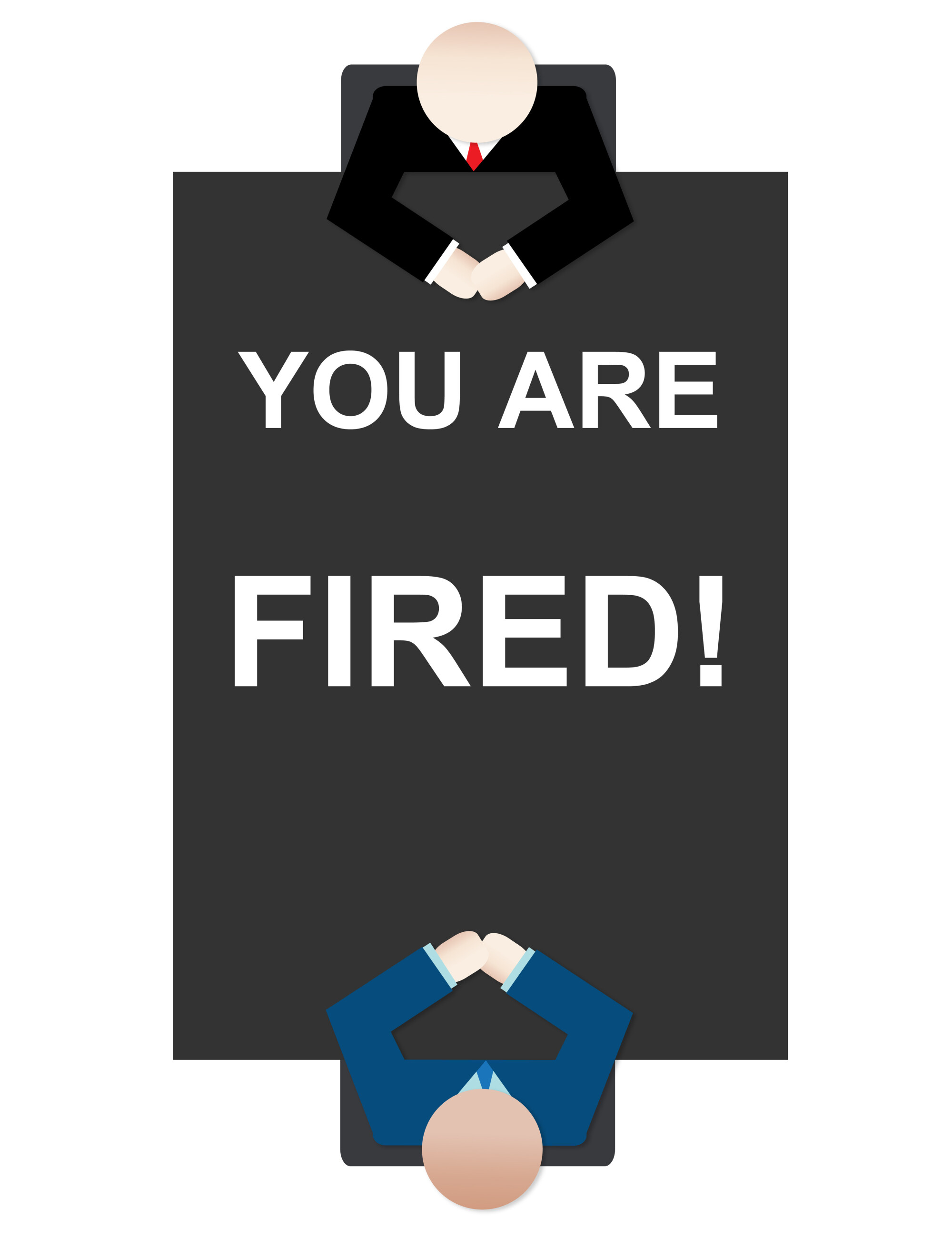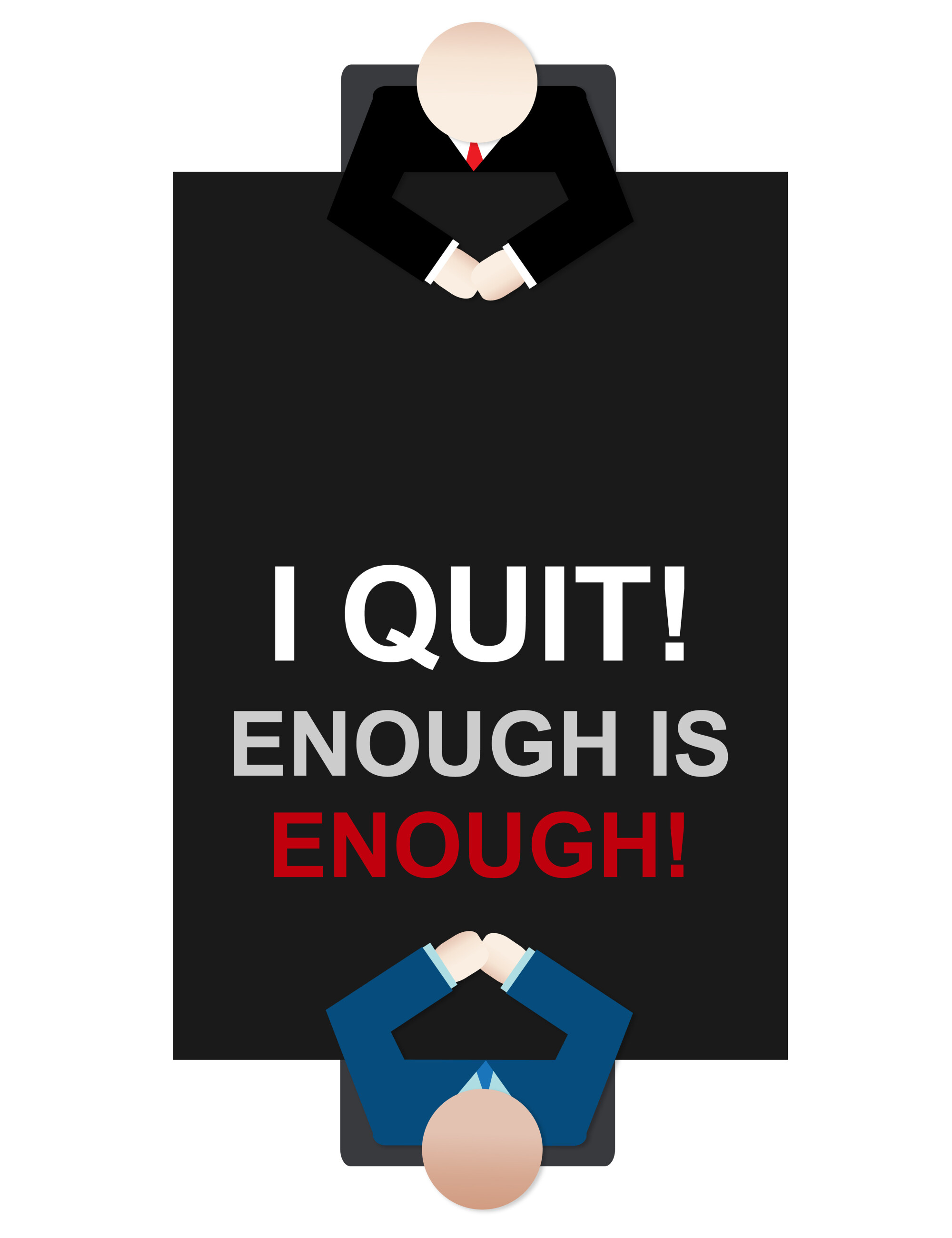I'm sure you've heard of "quiet quitting," when an unhappy employee does the bare minimum to get by and keep drawing a paycheck, but doesn't care much about the job beyond that.
(When "quiet quitting" was all the rage a few months ago, I was just puzzled. Who knew that mediocrity was a new phenomenon?)
But a counter-trend has been in the news: Quiet firing. This is when an employer does whatever it can to make the job distasteful to the employee, in the hope that the employee will "voluntarily" quit.
Wow. Sounds great, Robin! We'd like to fire Dustin, but we want to avoid all that unpleasantness associated with a firing, not to mention the price of a separation package. We'll just make his life miserable so he'll voluntarily quit, and then we won't have to pay him a dime. And, since he'll be quitting, even Dustin will go away happy. It's a win-win-win! This blog is fantastic!
 THIS IS BAD, BUT THERE ARE WORSE THINGS.
THIS IS BAD, BUT THERE ARE WORSE THINGS.
Whoa. This "new thing" is old as the hills. There is even a legal term for it: Constructive discharge.
What's a "constructive discharge"?
Generally, the courts will find that an employee was "constructively discharged" when the employer deliberately makes working conditions so intolerable that a reasonable person in the employee's position would feel compelled to resign. (This standard may vary a bit depending on your jurisdiction, but that's the general idea.) If a court finds that a resignation was actually a constructive discharge, then legally it's the same as if the employee was out-and-out fired. That means an employee who is constructively discharged can usually collect unemployment benefits. If any alleged illegal motive was arguably involved, the employee can also sue for wrongful discharge, and file a charge or administrative complaint, and recover damages as if he or she was fired. (Notice that I said "and," not "or.")
Of course, any good employer has to do things that employees find unpleasant. It may have to make (and enforce) workplace rules. It may have to give a "quiet quitter" a poor performance review. It may have to make changes in its operations for business reasons that employees don't like. It may not be able to find applicants willing to fill certain vacancies, which may overburden everybody else. It may have to require employees to go through training that the employees find both tedious and excruciating. This is not what we mean by constructive discharge -- er, I mean, "quiet firing."
But what about these?
- Pervasive temper tantrums, verbal abuse, or worse, directed at an employee.
- Failing to address known unlawful harassment in the workplace.
- Reducing the pay of a Department Manager to the federal minimum wage ($7.25/hour).
- Requiring your VP of Sales to scour the toilets. Full time. Using a dishrag.
Terrible, right? If an employee working under these conditions quits, a court is almost certain to find that the employee was constructively discharged.
 LEGALLY, THIS COULD BE WORSE THAN A TERMINATION.
LEGALLY, THIS COULD BE WORSE THAN A TERMINATION.
Those last two examples were extreme, and all four were pretty obvious. Here are some that are more subtle:
- When you hired Alfred, who lives a four-hour round trip away from the office, you told him that he could perform his job remotely except for major meetings that might occur three or four times a year. Alfred has done a good job working from home and is reliable and accessible. Now that COVID is over (or is it?), you tell Alfred that he has to come to the office in person every day.
- You need to eliminate 20 jobs in a 30-person department, but you eliminate only 10 because you are hoping that 10 more will be so stressed out and anxious that they'll quit, saving you the cost of severance pay.
- You impose arbitrary, and sometimes conflicting, expectations on Jennifer, to the point that she feels she can never do anything right no matter how hard she tries.
These actions may or may not amount to a constructive discharge. There could be legitimate reasons for requiring employees to return to the office, for conducting a RIF (even a partial RIF), or for imposing expectations that the employee may perceive as unreasonable. But if the goal was to get folks to resign, that will work against the employer in court.
Why is "quiet firing" a bad idea?
Believe it or not, you may actually have more legal protection as an employer if you just fire. For example, let's say Betty Lou is a lousy employee. You provide her with constructive negative feedback with suggestions about how she can improve. (All documented, natch.) Let's say you do this, preferably more than once, and Betty Lou stays bad. You eventually fire her for poor performance. Then Betty Lou sues. What will happen in the end?
- You have documentation showing that Betty Lou was a poor performer.
- You have documentation showing that you went over this with Betty Lou and gave her a reasonable chance to improve.
- Betty Lou didn't improve, so you fired her.
Betty Lou may claim discrimination, or retaliation, or wrongful termination, but you have proof that she wasn't doing the job and that is why you fired her. You are very likely to win.
 BAD.
BAD.
And here's something even better. Let's say Betty Lou claims intentional infliction of emotional distress because the termination was so traumatic and upsetting to her. And it no doubt was. But in most states, firing an employee is not the type of "extreme and outrageous conduct" necessary to support an intentional infliction claim.
So you win (after spending a few years in court) and live happily ever after.
On the other hand, if you decide to get cute and do a "quiet firing," here's what could happen:
- You have nothing but your word to show that Betty Lou was a poor performer. (Betty Lou insists she was the greatest.)
- Betty Lou has evidence of all the mean, petty, crappy things you did to her while trying to get her to quit.
- As a result of your actions, Betty Lou has been diagnosed with depression and anxiety.
- And, yes, Betty Lou resigned, but any reasonable person in her shoes would have done the same.
You might win, but there is a very good chance that you will lose. And the mean, petty, crappy things you did to get Betty Lou to quit can be the basis for an intentional infliction claim even though a straightforward firing usually cannot.
 BADDER.
BADDER.
The moral: Don't be chicken.
Employers, it really is best to be (1) fair and (2) honest. If you need to fire, then fire (after making sure you can justify the decision, with the help of your employment counsel, if necessary). If you need to conduct a reduction in force, then do it (again, with the help of counsel).
If you act with the courage of your convictions, you'll be better off in the long run. "Quiet firing" is not an easy out.